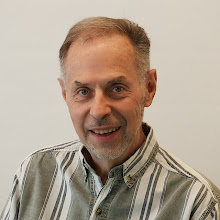Can A Person of Bad Character Become A Person of Good Character?
The Question the U.S. Presidential Election Poses
Now that the U.S. presidential election is over, it is time to ask some serious moral and theological questions. Most of the campaign against the election of Donald Trump was based on some undeniable evidence of corrupt and sexually immoral character -- from several years ago. Several prominent political figures deemed him to be "unfit" for the highest office in the nation.I am not a champion of Donald Trump, but I am a champion for biblical truth, and I feel compelled to challenge the belief that once a person is publically exposed as a person of bad character therefore that person's character has been permanently defined as "unfit, dangerous, scary, deplorable, evil."
This kind of thinking runs through every strata of society, which is why it needs to be challenged. There are people who want to identify sexual predators, for example, to "lock them up and throw away the key." Lest I be misunderstood, I am not advocating leniency for sexual predators. I am simply pointing to an underlying belief system that says that persons of bad character cannot become persons of good character. The evilness of their character is indelible and unchangeable. "Once a sexual predator, always a sexual predator."
Here is a great irony: In national elections, candidates appeal to the peoples' expressed desire for change. But what kind of change can satisfy the human heart's desire for change? If we do not believe in the capacity of people to undergo deep, personal transformation of their inner being from bad to good, then for what kind of change do we hope and expect?
I am saying to all those who call themselves the followers of Jesus that there is no Gospel of the Kingdom apart from this faith and expectation that people of bad character can and must become people of good character. It is at the heart of the biblical message. Saul of Tarsus, a Jewish terrorist, who persecuted the church of God, described himself accurately as "the chief of sinners," but also as an apostle of Jesus Christ by the grace of God! This very bad character became a very good character, and a central figure in the history of the church. And he described this radical change in these words: "I have been crucified with Christ. It is no longer I who live, but Christ who lives in me."
The history of the church is only about people of bad character who became people of good character. John 1:12 - "To all who received him, who believed on his name, he gave the power to become . . ." It is our only hope -- that we can become something else. And we can.

